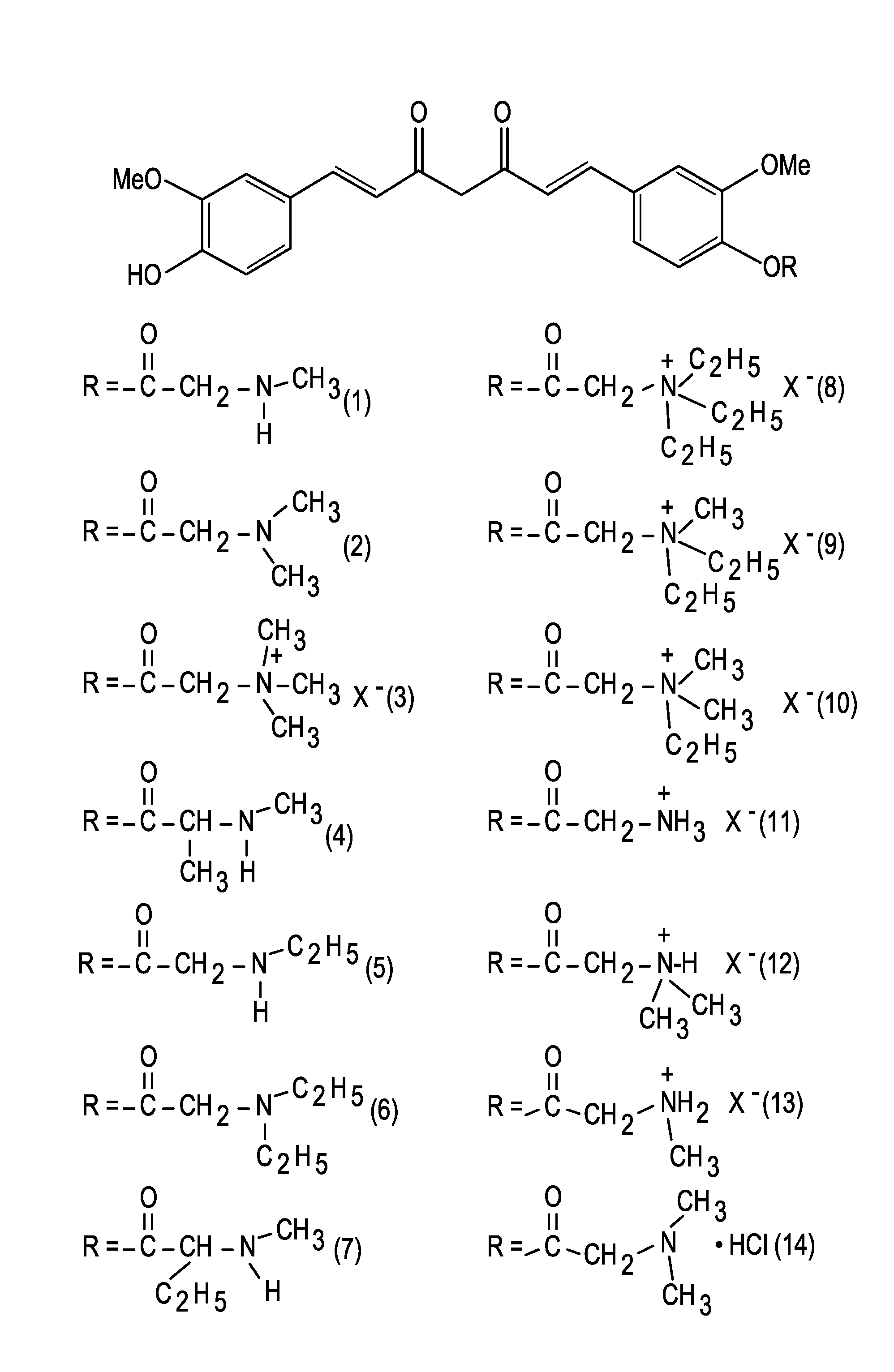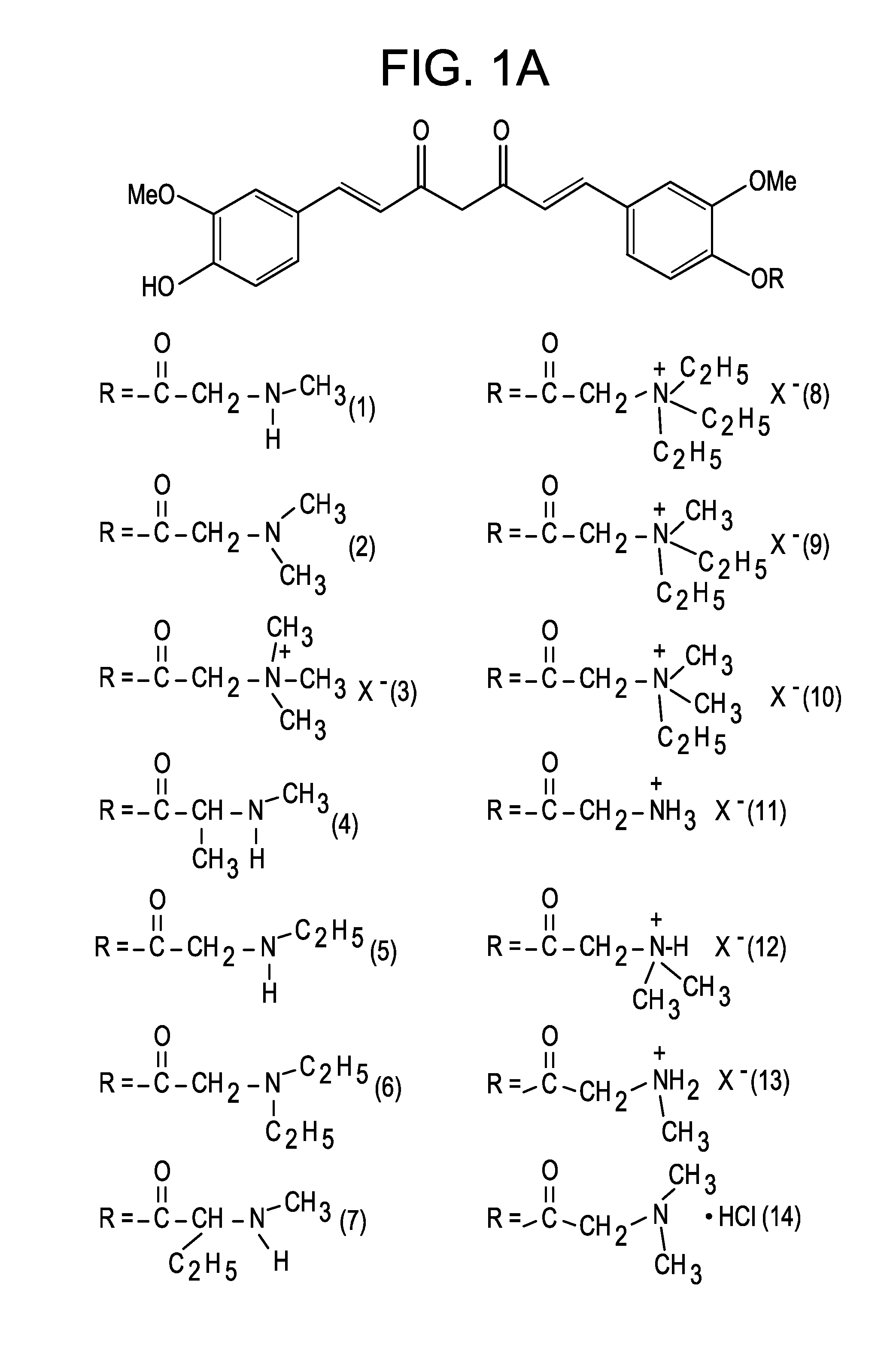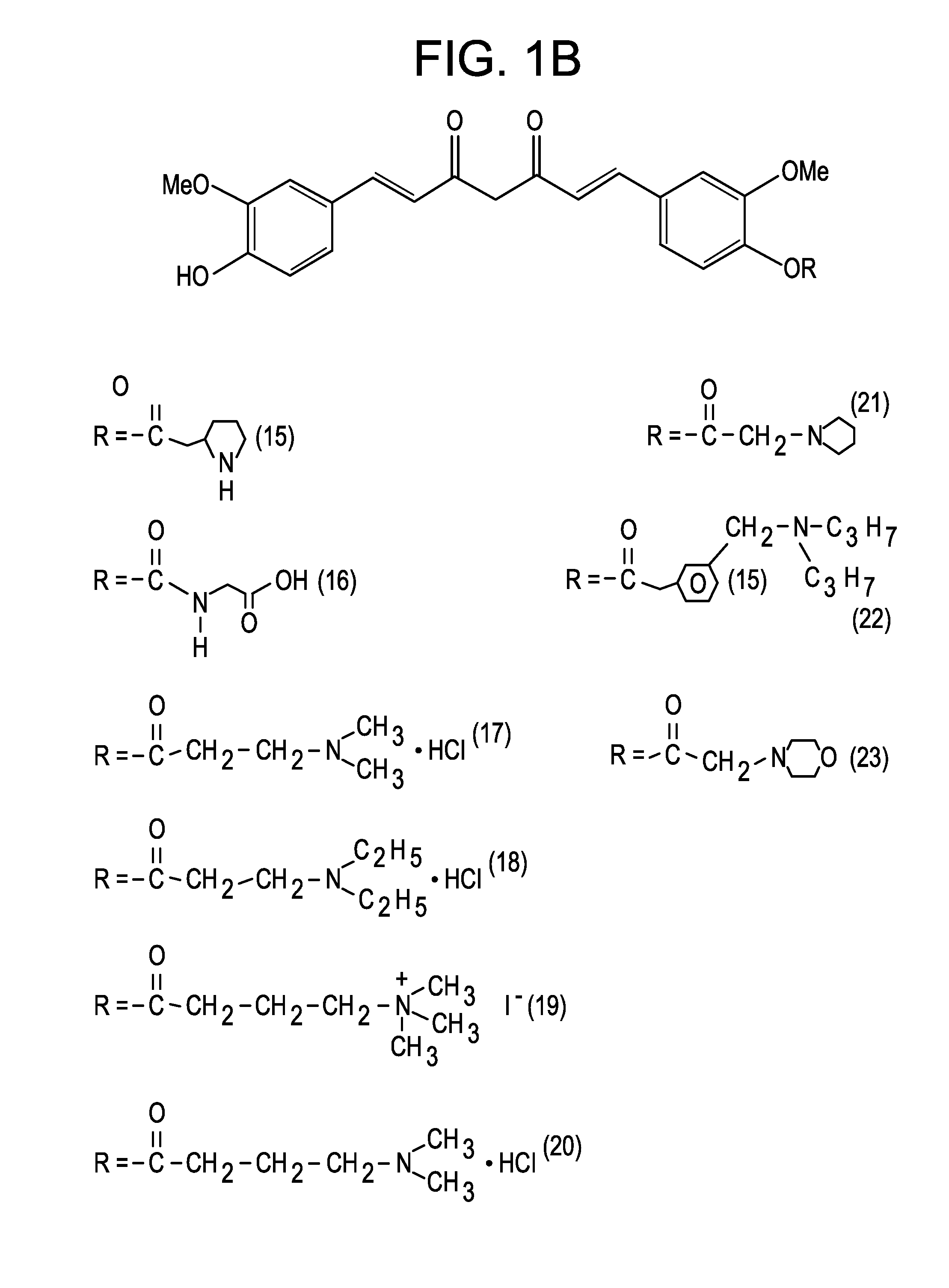Intranasally administering curcumin prodrugs to the brain to treat alzheimer's disease
- Summary
- Abstract
- Description
- Claims
- Application Information
AI Technical Summary
Benefits of technology
Problems solved by technology
Method used
Image
Examples
Embodiment Construction
[0018]As used herein curcumin is also known as diferuloylmethane or (E,E)-1,7-bis(4-hydroxy-3-methoxyphenyl)-1,6-heptadiene-3,5,-dione. Curcumin may be derived from a natural source, the perennial herb Curcuma longa L., which is a member of the Zingiberaceae family. The spice turmeric is extracted from the rhizomes of Curcuma longa L. and has long been associated with traditional-medicine treatments used in Hindu and Chinese medicine. Turmeric was administered orally or topically in these traditional treatment methods.
[0019]In some embodiments, curcumin is intranasally administered so that it produces a brain tissue concentration of at least 0.1 μM, more preferably at least 1 μM, more preferably at least 5 μM, more preferably at least 20 μM.
[0020]Without wishing to be tied to a theory, it is believed that a daily intranasal dose of at least about 0.2 mg / kg would be sufficient to produce the above-cited brain tissue concentrations. More preferably, the dose is at least 1 mg / kg, more ...
PUM
| Property | Measurement | Unit |
|---|---|---|
| Molar density | aaaaa | aaaaa |
| Molar density | aaaaa | aaaaa |
| Molar density | aaaaa | aaaaa |
Abstract
Description
Claims
Application Information
 Login to View More
Login to View More - R&D
- Intellectual Property
- Life Sciences
- Materials
- Tech Scout
- Unparalleled Data Quality
- Higher Quality Content
- 60% Fewer Hallucinations
Browse by: Latest US Patents, China's latest patents, Technical Efficacy Thesaurus, Application Domain, Technology Topic, Popular Technical Reports.
© 2025 PatSnap. All rights reserved.Legal|Privacy policy|Modern Slavery Act Transparency Statement|Sitemap|About US| Contact US: help@patsnap.com



